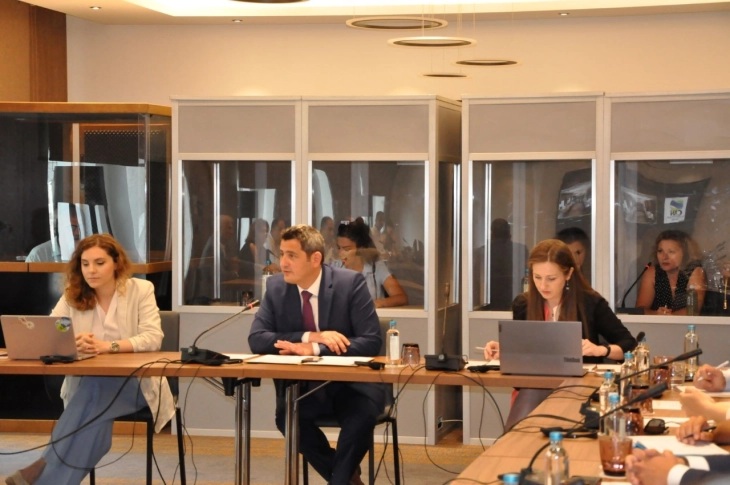Nuredini: Businesses must and should lead energy transition in region
- Post By Nevenka Nikolik
- 13:44, 22 June, 2022

Skopje, 22 June 2022 (MIA) – Representatives of the government, civil, academic and private sectors in the Western Balkans debated ways for the business sector to find itself in the front-lines of the energy transition. A roundtable on opportunities and challenges for the business sector from implementing mechanisms to tax CO2 in the Western Balkans was organized by the Ministry of Environment and Physical Planning, the Climate Action Network of Europe (CAN) and the Center for Environmental Research and Information Eco-sense.
Given the need for swift climate action and decarbonization of the business sector, the roundtable secured a platform to recognize its key role in the energy transition in the Western Balkans and the significance of its early inclusion in creating the proper policies, according to the Ministry.
“Active and timely inclusion of businesses, especially energy intensive and productive, in the fulfillment of decarbonization goals as a step forward towards achieving carbon neutrality by 2050, is not only useful for society, but it could also be cost-effective,” said Minister Naser Nuredini, inviting the business sector to share its good experiences and ways for the transition towards greener industrial approaches to be done in the most effective, fair and successful way in the region.
The business opportunities and challenges of the energy transition were considered during the discussion, as well as the possible benefits and effects of carbon taxation, as well as the need to prepare the private sector to respond to the obligations related to climate goals for 2030, the Energy Community decarbonization path, the Sofia Declaration for the Western Balkans and the EU mechanism for adaptation of carbon emissions at border crossings.
Representatives of leading companies of the energy sector and other carbon-intensive industrial sectors of the Western Balkans, representatives from Montenegro, local companies such as Usje Cement Factory, Titan Skopje, Makstil, as well as the scientists participating in analyses and making possible scenarios, as well as modeling and creating national politics and climate goals.
“The road to achieving our climate neutrality goals has to be all-encompassing and fair. It’s imperative that each affected party takes responsibility for their actions, including carbon-intensive industries. An early transition towards fossil-free solutions is not just an opportunity to mitigate climate changes, it’s also an opportunity for the economy to minimize the influence of the transition through adaptation of its business models and supply long-term sustainability,” the organizers said. dk/nn/







